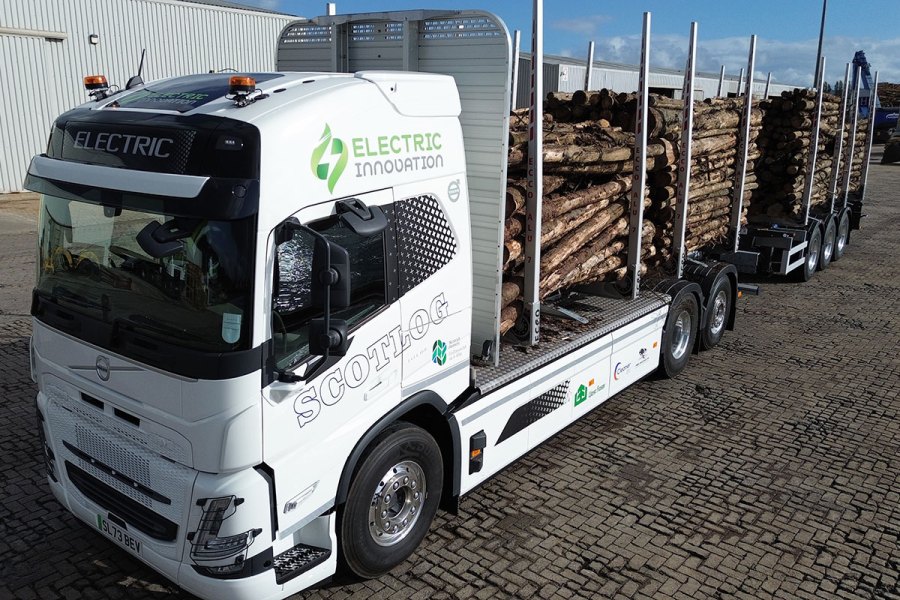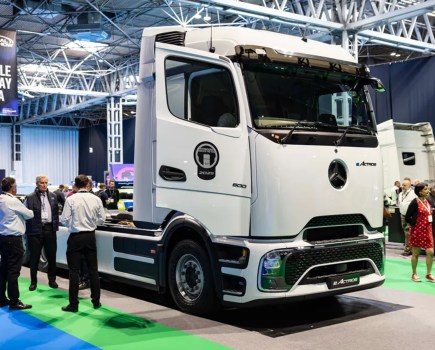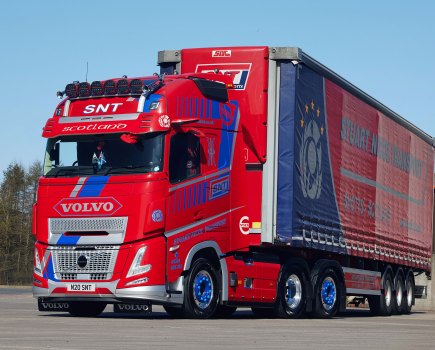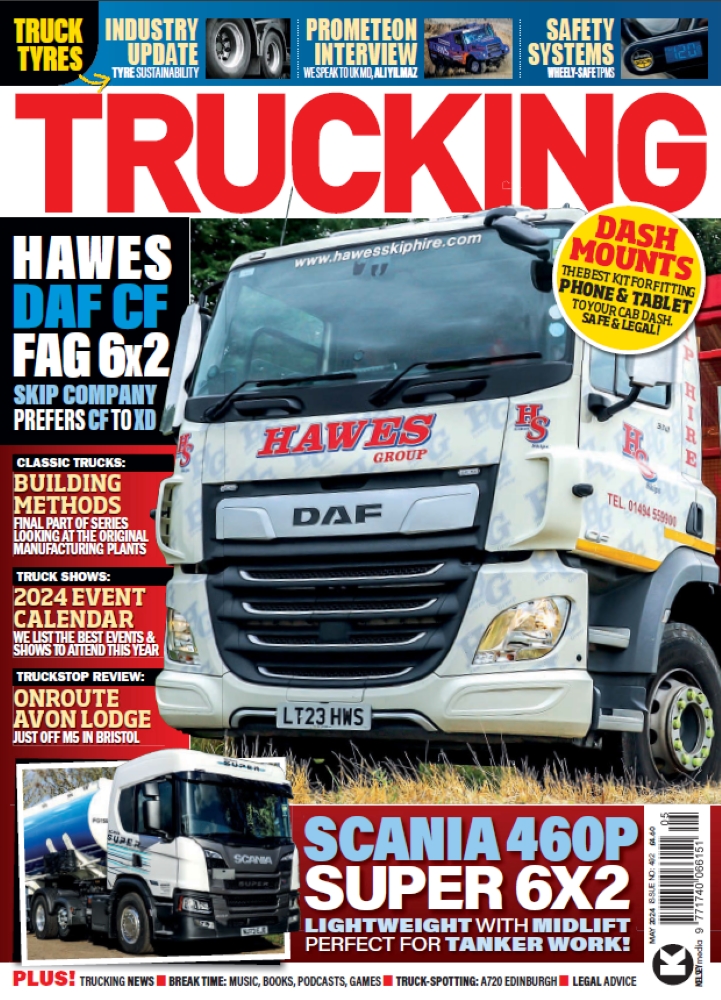A new electric timber truck is now in operation in the Highlands as part of a forestry trial to help decarbonise the sector.
Scotlog Sales Ltd of Inverness has taken delivery of the new 44-tonne wagon, which will transport timber shipped in from the west coast to be hauled from the Port of Inverness to the West Fraser site at Dalcross.
The new wagon-and-drag truck – a rigid vehicle and trailer – is part of a three-year trial testing two state-of-the-art electric vehicles to move timber, cutting down on emissions.
The Volvo truck is the first of their line to be produced in Europe and is fitted with a specialist Metsatek timber body and Ecco bolsters.
The truck is already in operation, firstly working at the Port of Inverness before taking to the roads and becoming a familiar sight on the A96.
Scottish Forestry is investing £452,000 towards the trial, partnering with Scotlog Sales Ltd, James Jones & Sons, the Volvo Group and Cleaner EV.
A second electric lorry (artic unit) has operated in south Scotland with forestry business James Jones & Sons.
Rural Affairs Secretary Mairi Gougeon said: “Around 7 million tonnes of wood are harvested from Scotland’s forests yearly and transported to sawmills, board manufacturers and other processors, mostly on 44-tonne diesel lorries.
“The forestry sector is keen to use modern technology to tackle timber transport issues as part of its overall efforts to decarbonise and reach Net Zero.
“I’m pleased that this second truck is now working in the Highlands and look forward to hearing more about this innovative trial and how it can help cut transport emissions.”
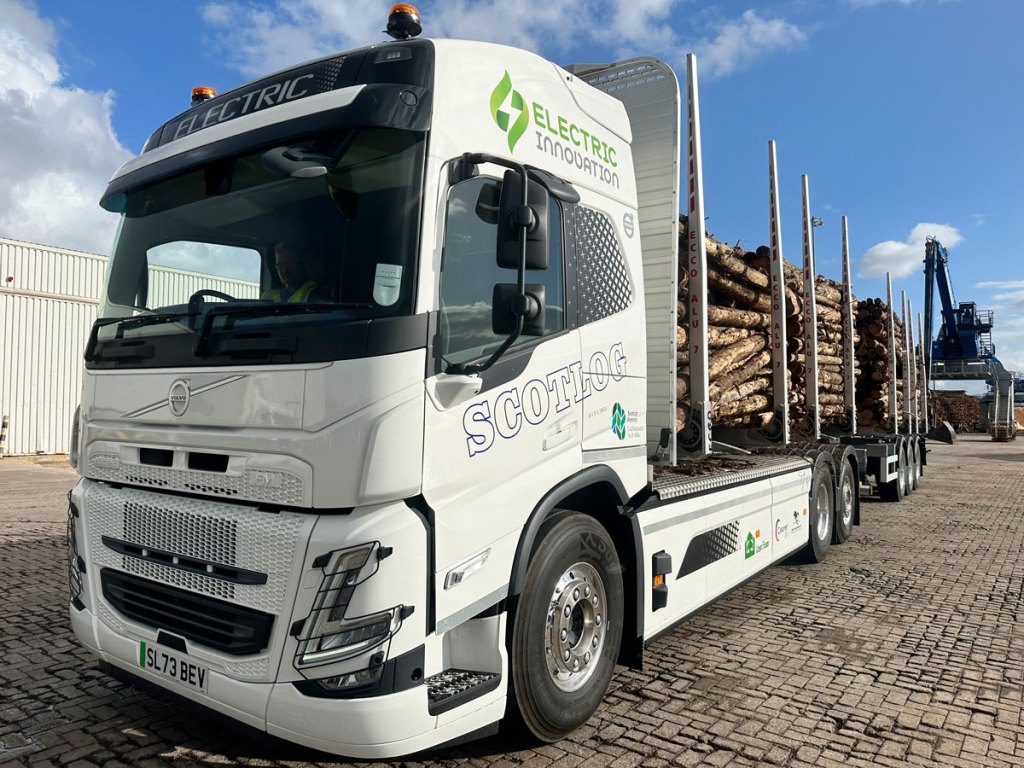
A key element of the three-year trial is that all the partners involved are committed to sharing their experiences of running the electric lorries with others in the timber and rural haulage sectors. Creel Maritime Ltd consultants are monitoring the use of the lorries and arranging knowledge exchange opportunities over the following three years.
Neil Stoddart, Director of Creel Maritime Ltd, is managing the project with his team. He added: “In terms of road haulage, the timber industry is pretty advanced in looking for solutions to decarbonise. For example, we are reducing diesel lorry miles on many projects and opting for transport by sea.
“This is a very exciting project, but there are big challenges in running HGV lorries on electric power, mainly on cost grounds and infrastructure. This three-year trial will look into all these aspects, and I’m keen to share as much detail on this with the industry. So far both trucks match expectations regarding commercial performance and driver operation.”
Timber transport is an integral part of the forestry sector chain and reducing its emissions through technology and different modes of transport is a positive move. The timber supply chain relies on many parts of the forestry sector and creating new woodlands is part and parcel of this effort, ensuring timber is available well into the future.
Leaders from the forestry, rural, environmental and community sectors are to meet in Perthshire next week at the Woodland Creation Summit, which Ms Gougeon will chair. It will look at new opportunities at expanding Scotland’s woodland creation rates, whether it is by new planting or natural regeneration.

